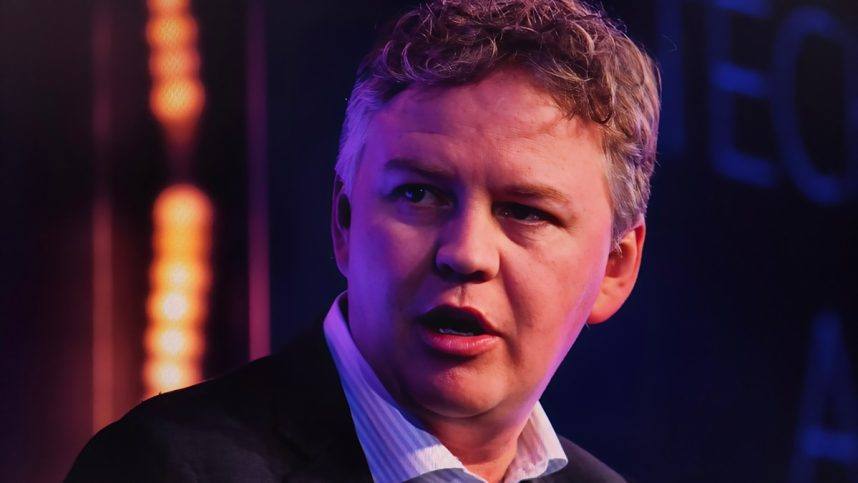Billionaire Matthew Prince: ‘Ozempic is Killing Vegas’
Posted on: October 20, 2025, 09:14h.
Last updated on: October 20, 2025, 11:05h.
- Matthew Prince’s claim that Ozempic is “killing Vegas” is provocative
- Current data links Las Vegas’s tourism decline to factors including economic shifts and digital disruption
- No direct evidence links weight-loss drugs
Cloudflare CEO Matthew Prince has a “pet theory” explaining the Las Vegas tourism downturn. On October 19, he told his 140K followers on X that the Ozempic is “killing Vegas.” Prince likened the weight-loss drug’s behavioral effects to those impacting snack food brands, liquor producers and wine tourism, suggesting that GLP-1 medications curb the indulgent behaviors — overeating, drinking, and gambling — that Las Vegas depends on.

His post quickly garnered 1,400 likes and sparked viral debate.
According to the Las Vegas Convention and Visitors Authority (LVCVA), visitor volume for the first half of 2025 totaled approximately 19.6 million, down 6.7% from 21 million during the same period in 2024. Monthly declines continued through September, ranging from 6% to 11%.
Most experts attribute the downtown to inflation, cautious consumer spending and competition from other gaming providers. But could Ozempic be eating Vegas tourism?
Weighing the Evidence
 GLP-1 receptor agonists — including Ozempic, Wegovy, and Mounjaro — have seen rapid adoption in the US. According to a September 2025 KFF Health Tracking Poll, 12% of U.S. adults have used a GLP-1 drug, with 6% currently taking one — a sharp rise from 8.3% in mid-2024. These drugs are known to suppress appetite and reduce cravings, including for alcohol and other dopamine-driven behaviors.
GLP-1 receptor agonists — including Ozempic, Wegovy, and Mounjaro — have seen rapid adoption in the US. According to a September 2025 KFF Health Tracking Poll, 12% of U.S. adults have used a GLP-1 drug, with 6% currently taking one — a sharp rise from 8.3% in mid-2024. These drugs are known to suppress appetite and reduce cravings, including for alcohol and other dopamine-driven behaviors.
Their impact on some consumer industries is already being felt.
A 2025 EY-Parthenon survey projected that GLP-1 adoption could reduce snack food market growth by up to $12 billion. Analysts cited changing consumption patterns, including reduced demand for high-calorie snacks and sugary beverages. (While some reports estimated a 4%–6% decline in snack sales at companies like PepsiCo, the company’s CEO publicly insisted that the impact of GLP-1 drugs was “not significant,” attributing sales softness to broader economic trends.)
In the alcohol sector, Wine Enthusiast reported a 5.1% decline in tasting room traffic across US wine regions in 2024, which aligns with a 2025 study published in the journal JAMA Psychiatry that found that found a “significant reduction” in alcohol consumption among Ozempic users with alcohol use disorder during a controlled lab test.
Gambling is often an impulsive behavior that may be influenced by the same reward pathways modulated by Ozempic, though the mechanism is not fully understood.
Most gaming and tourism experts blame Las Vegas’s tourism slump on broader forces. While a causal relationship between Ozempic use and not visiting Las Vegas is certainly possible, there’s one statistic that, at least so far, renders Prince’s argument improbable.
Don’t Bet on It
The American Gaming Association (AGA) reported that online sports betting and iGaming in the US generated $6.19 billion in Q1 2025 — up $1.3 billion (26.6%) over Q1 2024 and accounting for a record 32.8% of total US gambling revenue.
Not only is this particular impulsive behavior increasing in the face of the Ozempic explosion, it could also explain at least some of the decline in Las Vegas casino tourism — especially among younger people who prefer digital convenience over traditional casino experiences.
While Ozempic’s effect on Las Vegas tourism may warrant peer-reviewed study, for now, inflation, cautious consumer spending and digital gambling growth remain the more convincing suspects.
Last Comments ( 2 )
All of the HOOKERS left for Only Fans. Why bother with Vegas ever again?
I'm taking GLP-1 medication. So far I've dropped about 50 pounds and my last A1C reading was 6.0!! My visits to Encore Boston Harbor, Mohegan Sun, and The Brook (in NH), are at the same level they've been at for the last couple of years, with losses consistently outnumbering winnings. I can enjoy the same things locally without the need to spend 7 hours contorted into a seat in a metal tube and being nickeled-and-dined for every last thing possible in Las Vegas. Plus, with the exception of Mohegan Sun, I can gamble to my heart's content and still sleep in my own bed at night. Matthew Prince is just another self-obsessed billionaire that has no problem with profiting off other people's bad behaviors.